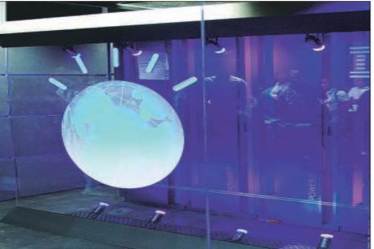In India, much has transpired technologically in the last fortnight. On the one hand, the government’s contact tracing app, Aarogya Setu reached 100 million downloads. Besides, the government was able to contact trace 100,000 people using the app by using data of 12,500 infected individuals, with an efficacy rate of 23%. On the other, ICMR announced that it would be leveraging IBM’s Watson to enhance performance. Although the partnership is only limited to using Watson’s capabilities for chat, it is still a significant step in government relying on artificial intelligence to improve its response time. Given that India will need to ramp up testing in the coming months, every minute counts.
Why is ICMR using Watson?
By March 7, ICMR had 52 testing labs ready and operational, but as cases kept on piling it had to increase testing infrastructure. Today, as ICMR is closing in on conducting 1 lakh tests a day, it has 360 government labs and 147 private labs operational across the country. Registering test kits, keeping an inventory and presenting results is a logistical nightmare. So, ICMR tied up with Watson to improve database management, using its chat service. Watson, in this case, helps laboratories record data in the format prescribed by ICMR so that there are little infractions and ICMR has regular and real-time information of conditions.
How many languages is the service available in and what all can Watson cover?
Gargi Dasgupta, Director, IBM Research India and CTO IBM India/South Asia, explains that at present the service is available in two languages, Hindi and English. She explains that Watson, in this case, is not only providing a menu-driven response platform but is relying on its natural language processing capabilities to respond to all kind s of questions. IBM, she says, collated documents from ICMR, to make Watson learn on what sort of questions could arise and how best it could answer them. How Watson replies also depends on how effectively it can understand your question. If it can match what you are asking it will give a definitive answer; otherwise, it shall provide two-three solutions from its knowledge database.
What are the savings due to this process?
Each time an operator would pick up the call and answer queries, it would take at least 3-4 minutes. So, Watson is saving that time. Besides, ICMR can focus on other analysis and not worry about data entry with the help of Watson, so that gives the agency more resources to do research.
So, what else is IBM doing for ICMR?
As far as analysis is concernedICMR has dashboards and database of their own . But we are also providing them an analysis on requests placed with Watson and how we can better the system, says Dasgupta. IBM is also in talks with ICMR about expanding this to other applications.
Techsplained @FE features weekly on Mondays. If you wish to send in queries that you want explained, mail us at ishaan.gera@expressindia.com
